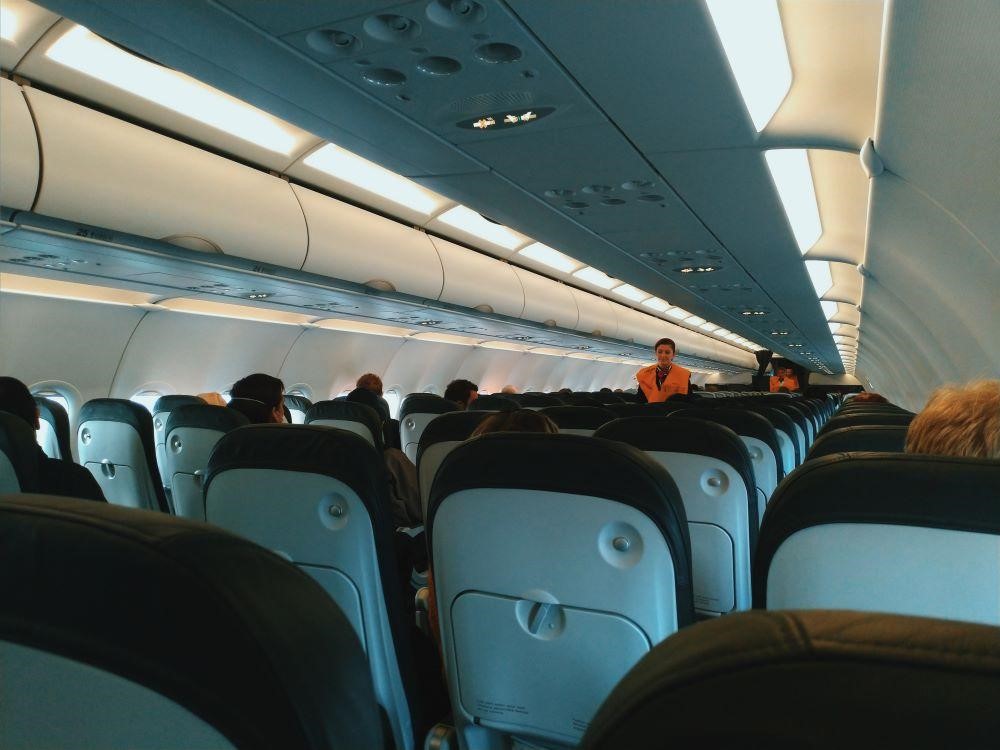As an operational cabin crew member, you will need to hold a valid medical report that has been issued by an approved Aeromedical Examiner (AME). The report will confirm whether you are fit to do your cabin crew duties. This cabin crew medical will need to be carried out initially before you start in the role and then every 5 years to ensure you remain fit and healthy to do your job safely.
To help you prepare and keep fit for your cabin crew medical, there is some essential information below.
What to expect from a cabin crew medical
Being a cabin crew member is a demanding job. You’re on your feet for long periods of time, spend many hours in the sky and often have to work strange hours on night and long haul flights. It’s therefore important that you are physically and mentally fit to cope with the demands of the safety critical role and be able to have a smile on your face to reassure and welcome passengers.
If you’re new to the role and haven’t yet had your first cabin crew medical test, here’s a little info on what to expect.
Initially, you will be asked about your medical history and this is your opportunity to share any information about past conditions, previous medical investigations or concerns that you might have. Not disclosing anything at this stage, could result in a delay in your medical report being issued and therefore a delay in you being able to start your job.
During your cabin crew medical, you will undergo several tests including:
- Blood pressure
- Hearing
- Eyesight
- Height and weight
- Urine test
- ECG
- Reach test – to make sure you can safely reach items in overhead lockers
You’ll also be asked about any recurring medical conditions or recent broken bones as well as general questions on your health such as how many units of alcohol you consume and how often you exercise.
What the medical examiner will assess
When you attend your cabin crew medical, the examiner will be looking in particular to assess your health and fitness is suitable with regards to:
- Being able to undertake the necessary training in terms of slide descending, fire fighting and using protective breathing equipment in a smoke filled environment.
- Being able to use an aircraft’s emergency systems and equipment – such as operating doors and escape devices.
- Being able to perform cabin crew duties at altitude, with pressure and recirculated air, in turbulent conditions and working within a limited space.
- Being able to cope in psychologically demanding and emergency situations.
Knowing what to expect from your cabin crew medical and what the examiner will be looking for can help you prepare for the test, but so too can looking after yourself and keeping your health and fitness levels at an optimum.
Top tips to keep fit ahead of your cabin crew medical
As a cabin crew member you’ll play an essential role in flight operations, ensuring the safety and comfort of other crew and passengers on board an aircraft, which means you’ll need to be fit and healthy and prepared for anything. To help you stay mentally and physically fit to ensure you can do your job to the best of your ability, and to help you pass your cabin crew medical, here are a few basic health and fitness principles you might like to follow:
Get regular exercise
Regular exercise is a great way to improve your stamina and cardiovascular fitness. Whether it’s going to the gym, running around your local park or taking part in a team sport, getting your heart rate going and working your muscles is a great way to keep you fit. Swimming is also another excellent way to improve overall fitness, plus it’s a requirement for cabin crew to be able to swim at least 25 metres without a flotation device, so the stronger you can swim, the better equipped you will be for the job.
Build up your core strength
A day in the life of a cabin crew member involves lots of stretching, reaching and bending, as you do your best to accommodate passenger requests and ensure that all cabin luggage is stowed away safely. Building up your core strength by practising yoga or pilates may help you to pass the reach test in your cabin crew medical as well as being fit and ready for the challenges of the role.
Follow a healthy diet
We are not saying it is easy to eat healthily when you are working long hours and frequently crossing time zones, but taking a few extra minutes each week to organise your meal planning and grocery shopping can make all the difference. Try not to rely on caffeine and sugary snacks to get you through the day, but instead make sure you always have healthy snacks at hand that will deliver the protein, fibre and vitamins your body needs. When you’re back at home, or on rest days, try to eat plenty of fresh fruits and vegetables and avoid processed foods. Cutting down on or avoiding alcohol will also benefit you in the short term by helping you to feel more focused, and in the long term by lowering blood pressure and reducing your risk of liver or heart disease.
Look after yourself
It isn’t just your physical health that you need to pay attention to when preparing for life as a cabin crew member, but also your mental health. A job like this can be very demanding and the long, unsociable hours may mean you can’t catch up with your friends and family as often as you would like. This is why it’s so important to make time for yourself whenever possible and do the things you enjoy, from taking a stroll in the sunshine, to reading a good book or catching up with friends and relatives, even if it is online from wherever you are in the world!
Hopefully this advice has been useful in your preparation for a cabin crew role. If you are ready to book in for your cabin crew medical test you’ll need to contact your local Aeromedical examiner, such as Heathrow Medical Services, based adjacent to Heathrow Airport.




